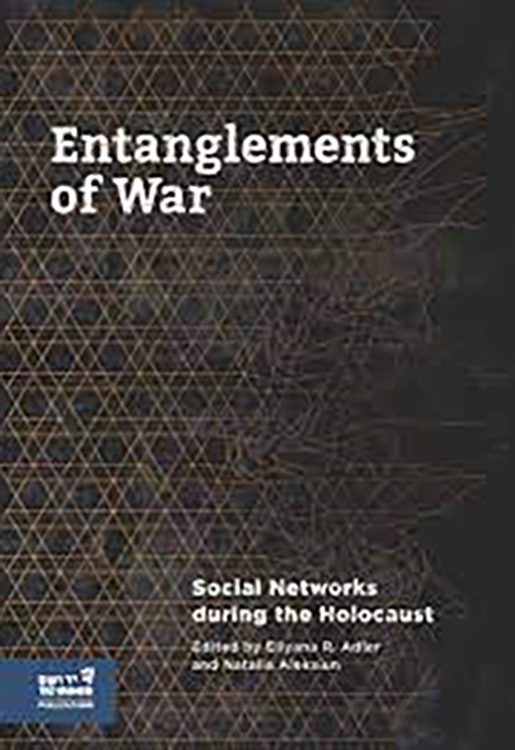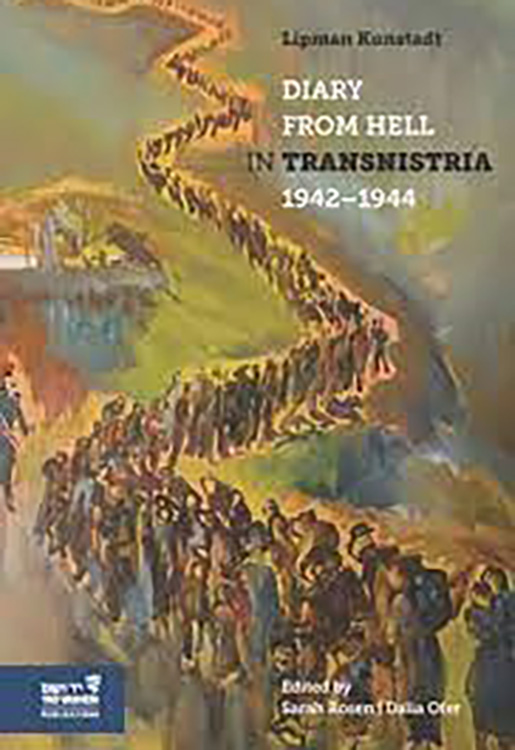In the Garden of the Righteous: The Heroes Who Risked Their Lives to Save Jews During the Holocaust
Richard Hurowitz
Harper, 2023
Less than a century ago, the Second World War took the lives of more than fifty million people; more than six million of them were systematically exterminated through crimes of such enormity that a new name to describe the horror was coined: the Holocaust. Yet amid such darkness, there were glimmers of light -- courageous individuals who risked everything to save those hunted by the Nazis. Today, as bigotry and intolerance and the threats of fascism and authoritarianism are ascendent once again, these heroes' little-known stories -- among the most remarkable in human history -- resonate powerfully. Yad Vashem, the Holocaust Memorial in Jerusalem, has recognized more than 27,000 individuals as "Righteous Among the Nations" -- non-Jewish people such as Raoul Wallenberg and Oskar Schindler who risked their lives to save their persecuted neighbors.
In the Garden of the Righteous chronicles extraordinary acts at a time when the moral choices were stark, the threat immense, and the passive apathy of millions predominated. Deeply researched and astonishingly moving, it focuses on ten remarkable stories, including that of the circus ringmaster Adolf Althoff and his wife Maria, the Portuguese diplomat Aristides de Sousa Mendes, the Italian cycling champion Gino Bartali, the Polish social worker Irena Sendler, and the Japanese spy Chinue Sugihara, who provided hiding places, participated in underground networks, refused to betray their neighbors, and secured safe passage. They repeatedly defied authorities and risked their lives, their livelihoods, and their families to save the helpless and the persecuted. In the Garden of the Righteous is a testament to their kindness and courage.
Entanglements of War: Social Networks during the Holocaust
Eliyana R. Adler and Natalia Aleksiun (Ed.)
Yad Vashem, 2022
The Nazi persecution and murder of the Jews of Europe led to the atomization of the social relationships of the victims. Families were ripped apart. Entire communities were ghettoized and isolated from the outside world. The forced removal of the Jews from the midst of the non-Jewish population facilitated the crimes committed against them, significantly limited the assistance they could rely on, and restricted the number of witnesses to their persecution and murder. However, despite the devastation, disruption, and loss brought by the Holocaust, prewar patterns and relationships continued to shape decisions and actions by Jews and non-Jews both during and after the war. Even in extremis, they often relied on established networks of support that had been forged in very different circumstances. Jewish victims as well as bystanders and perpetrators relied on the already familiar cohort of relatives, neighbors, peers, and colleagues to support and assist them during this time. Just as these networks brought people with various backgrounds together, Entanglements of War compiles a broad range of interdisciplinary perspectives to reveal invaluable findings about the relationships, choices, and actions that shaped these complex connections, and their impact on Jewish lives during the Holocaust and its immediate aftermath.
Diary from Hell in Transnistria 1942-1944
Lipman Kunstadt
Yad Vashem, 2022
I decided to stop writing the diary and to destroy the pages… I eventually overcame the despair and listened to the counterargument…a miracle may occur and your fragmentary writings will be the only remaining memory of Transnistria. (Lipman Kunstadt, August 26, 1942) Diary from Hell in Transnistria is a painfully vivid and intricate account of life in the Dzhurin ghetto in Transnistria, written by Lipman Kunstadt, who was deported there from Radauţi, Romania, with his wife, his children, his mother, and his sister on October 14, 1941. Kunstadt, who was well-educated and a journalist, was appointed secretary of the Jewish council in the Dzhurin ghetto, where he had access to a great deal of information about its inner workings. He began writing his diary in Yiddish on April 11, 1942, at great risk, sparing no criticism against the ghetto leadership. His journalistic instincts led him to discover and disclose the social scourges in the ghetto: the denunciations, the division into classes of the rich and the wretched poor, and the acrimonious relations between the deportees and the local Jews. Along with sharp criticism and harsh descriptions of the deportations, the diseases, and the deaths, the diary also abounds with Kunstadt’s musings and profound questions regarding God, justice and injustice, and reward and punishment, as well as poetic depictions of nature and the beauty of creation even in the hell of Transnistria. Kunstadt laid down his pen on April 13, 1945, following liberation and his return to his hometown of Radauţi with the surviving members of his family. Diary from Hell in Transnistria is a compelling, detailed chronicle of the fate of the Jews of Romania who were deported to Transnistria. Published for the first time in English, this annotated, scholarly edition makes a significant contribution to the study of the Holocaust in this region.
Night without end: the fate of Jews in German-occupied Poland
Jan Grabowski and Barbara Engelking (Ed.)
Indiana University Press, 2022
Three million Polish Jews were murdered in the Holocaust, wiping out nearly 98 percent of the Jewish population who had lived and thrived there for generations. Night Without End tells the stories of their resistance, suffering, and death in unflinching, horrific detail. Based on meticulous research from across Poland, it concludes that those who were responsible for so many deaths included a not insignificant number of Polish villagers and townspeople who aided the Germans in locating and slaughtering Jews.
When these findings were first published in a Polish edition in 2018, a storm of protest and lawsuits erupted from Holocaust deniers and from people who claimed the research was falsified and smeared the national character of the Polish people.
Night Without End, translated and published for the first time in English in association with Yad Vashem, presents the critical facts, significant findings, and the unmistakable evidence of Polish collaboration in the genocide of Jews.
Years of Defiance: The Herbert Baum Group and Jewish Resistance in Berlin
Charlotte Holzer
Yad Vashem, 2022
I was trembling like a leaf. The bunker people surrounded me… they immediately knew… They told me that I looked pale as a corpse, as if it had already happened. And it became so extremely and bitterly hard for me. Because I’d seen the child, because I’d tasted freedom, because I could see that the war was nearing its end... When the Nazis took power in 1933, the initial wave of suppression targeted especially Jews and Communists. Charlotte Holzer was both—a nurse by training, she had tried to improve the working conditions at the city’s Jewish hospital, which led her to establish contacts with Communist activists. Following a chance encounter with Herbert Baum, Holzer joined his resistance group of young, left-leaning Jews. When an anti-Soviet propaganda exhibition opened in Berlin, the Baum Group organized and executed an arson attack. Although it caused only minor damage, the Nazis hunted down, tortured, and murdered most of the members of the group. Holzer managed to evade the initial wave of arrests and executions, survived imprisonment, and made a daring escape from a Nazi camp on the eve of her execution. Hiding under false identities until liberation, she was subsequently able to reunite with her daughter, and eventually remarried. In the 1960s, Charlotte Holzer told her story in a series of interviews with an East German journalist. It is published here for the first time. Years of Defiance is a unique account of an intrepid woman’s determination to survive and a tribute to the martyred heroes of Jewish resistance in the very heart of the Nazi empire.










